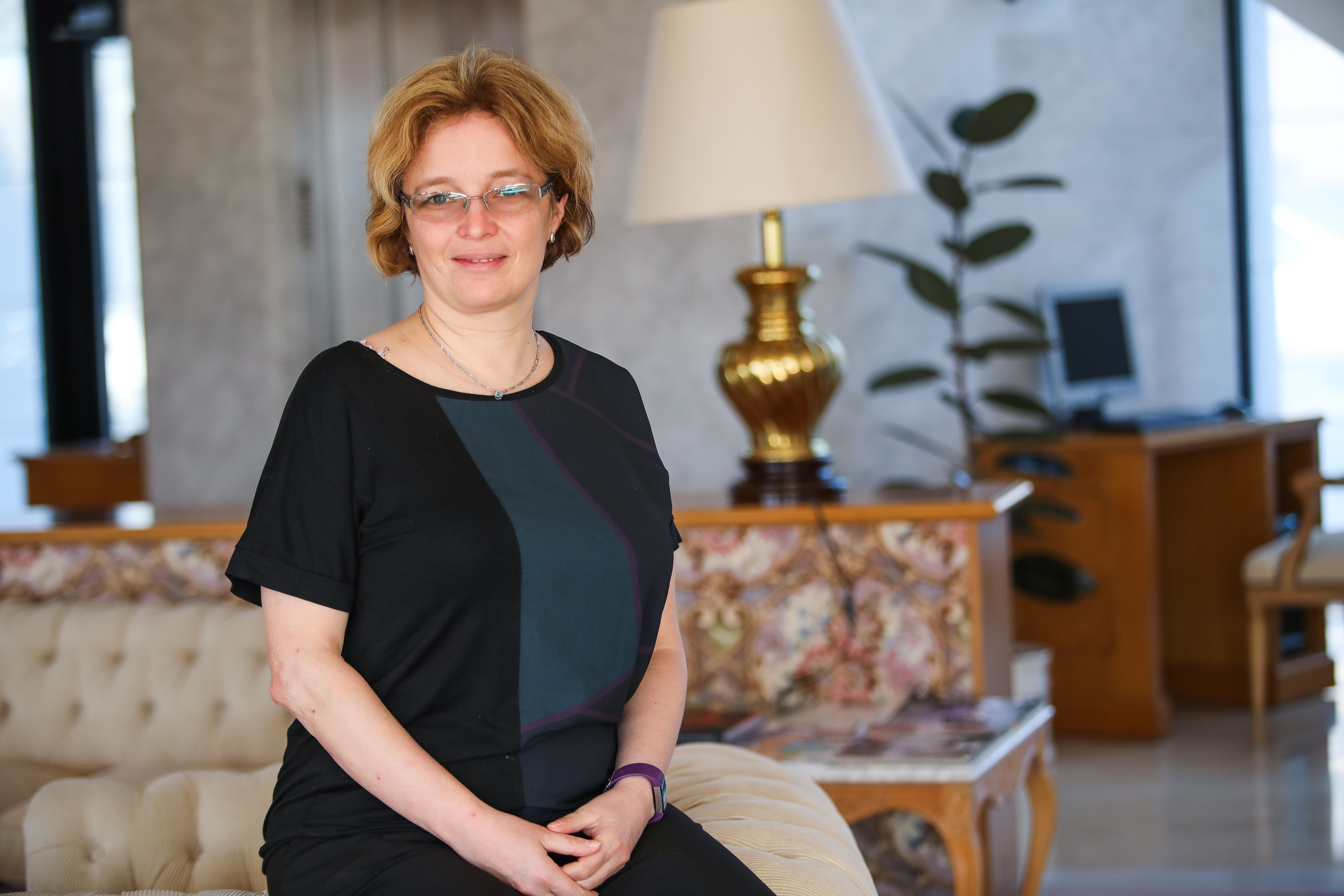Collective residencies / PEDAGOGICAL INNOVATION II / Olot
MARINA MILNER-BOLOTIN
From Tuesday, 19 February 2019 to Saturday, 2 March 2019

Bio
Dr. Marina Milner-Bolotin studies how technology can promote student engagement in science and enhance science teacher education. She earned her M.Sc. in theoretical physics at Kharkov National University, Ukraine in 1991 and completed her Ph.D. in science education at the University of Texas, in Austin in 2001. For the last 25 years, she has been teaching and researching science education in Israel, US, and Canada at K-12 and post-secondary levels. She has published more than 50 peer-reviewed publications and has co-authored an introductory physics textbook for scientists and engineers used by thousands of undergraduates. She also has conducted more than 100 professional development workshops for science teachers internationally: in Canada, USA, China, Israel, Hungary, Denmark, Spain, and Germany. She has served in leadership roles on a number of international science education organizations and Editorial Boards: American Association of Physics Teachers, LUMAT Education Research Board, Frontiers in STEM Education.
Project
This project will examine the research literature that sheds light on the innovative technology-enhanced pedagogical practices of European mathematics and science teacher educators. Comparing the practices used by European and North American teacher educators and noticing commonalities and differences will allow us to get new perspectives and exchange ideas. In addition, examining relevant research will show how educational researchers in Europe and North American approach similar (or different) challenges of mathematics and science teacher education. We have a lot to learn from each other, especially in the field of pedagogical innovations in mathematics and science teacher education.
Faber Residency: A unique opportunity to collaborate, learn, and get inspired
I have heard about Faber from a colleague who was a Faber resident in 2018 and recommended me to apply. At first I dismissed it. Being a scientist and a science educator, I have never heard of residencies for scientists and educators before and I was not sure it would be something relevant to my work. I have attended multiple conference and workshops, but residences? And a residence for people from multiple fields and walks of life? From my experience as a university professor, we often live in silos and have limited opportunities to collaborate or even discuss our work with colleagues outside our Faculty or even outside of our offices. So initially, I wasn’t sure how beneficial it would be to spend time with the people whose academic interests and professional experiences might have very little overlap with mine. And yet, the Faber’s beautiful web site and the overwhelmingly positive feedback from the past Faber residents, as well as prompt and friendly responses from the Faber staff convinced me. I am very interested in pedagogical innovation. So this session attracted my attention and I decided to apply. Fortunately my application was successful.
Faber was a big surprise for me. First of all I felt welcome. Mrs. Gavina Freixa made sure that we felt here at home and the staff at the Residence was very helpful. Mr. Francesc Serés, the Director of Faber, not only welcomed us, but shared with us his love for Catalonia, local culture and traditions. Being invited to a beautiful place with a rich culture and history is very inspirational. This also inspired us to explore Olot on bike. Second, I also feel very lucky that during my stay I was able to meet very inspirational people: a journalist – Erica Buist (UK), a poet – Kristina Marie Darling (US), a theater artist (US) and a learning designer Jacob Watson (US), and an educational researcher Tabia Kolympari (Greece). Coming from different countries, cultures and walks of life and having an opportunity to spend some time together in an informal environment is very rare in a modern world. And I am very grateful for that unexpected opportunity.
A unique change to meet with colleagues outside of my own field in such an informal and beautiful environment proved to be very special and extremely beneficial. The freedom I was given to work on my own projects without interruptions was something I haven’t had in years. As university faculty members we are often overwhelmed by teaching, committee responsibilities, and other work that draws us away from our research. To be creative one has to have time to reflect, to ponder, and to slow down. This is a gift that is rare in a modern world where we are always rushing. Faber gave me this gift and it was not surprising that by the end of the Residency I have finished a number of projects I have been struggling with for months.
Finally, I would like make a personal note. It is my second time visiting Catalonia. However, it is my first time where I was able to have some informal interactions with the local people. Thanks to our walks in nature and Francesc’s tour of the small towns near Olot, I had an opportunity to get a different prospective on this beautiful part of the world. I found Olot to be a very special place and I know that when I come back to Canada I will be paying a much closer attention to Catalonia, as this a small part of my heart will be left yhere. I hope I will be able to come back and I would like to express my gratitude to the wonderful staff of Faber Residency Olot and to the beautiful gift of Faber Residency they have given us.
